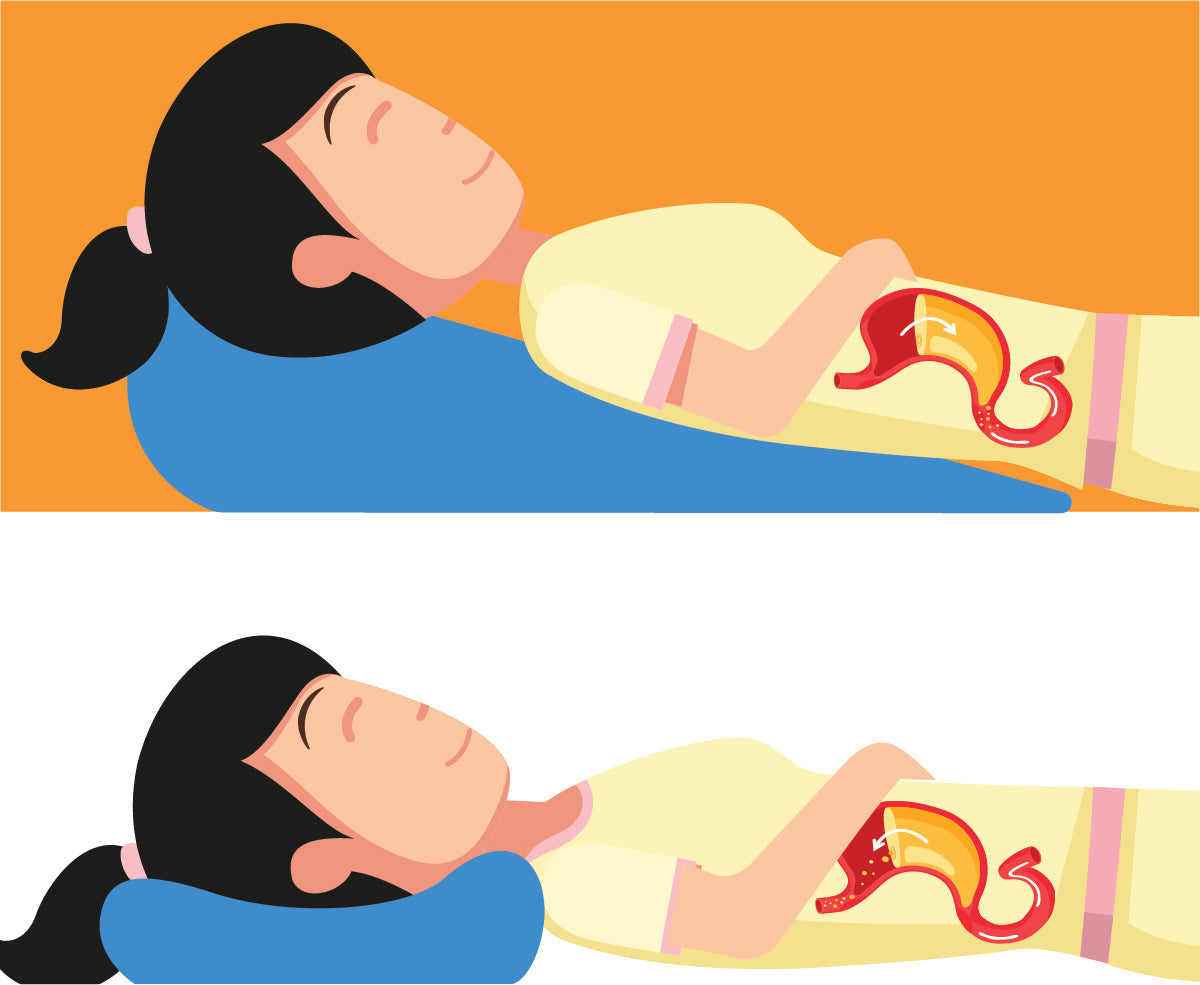

Learn more about foods people with GERD should avoid here.

The IFFGD advise avoiding potential dietary triggers, such as: reaching or maintaining a moderate weightĭiet may also play a role in preventing acid reflux.

The AAAAI note that the following lifestyle adjustments can help prevent acid reflux from occurring: This combination of sleep disturbances and more severe symptoms means that experiencing acid reflux while trying to sleep can worsen the quality of life for people with the condition.Ī person can make some changes to their diet and lifestyle that may prevent symptoms of GERD, such as acid reflux. A lack of sleep can cause increased sensitivity to acid in the esophagus.Ī person with acid reflux after bedtime may have more acute symptoms than a person experiencing it mainly during the day. While GERD influences sleep, sleep deprivation also has an impact on GERD. The International Foundation for Gastrointestinal Disorders (IFFGD) note that 79% of individuals with GERD experience symptoms after bedtime.Īs many as 75% of those with the condition say the symptoms have an effect on their sleep, and 40% claim the loss of sleep affects their ability to function when they get up. If the condition occurs regularly, it may be indicative of gastroesophageal reflux disease (GERD). You may report side effects to FDA at 1-80.A person with acid reflux, also known as heartburn, might feel a burning sensation in the stomach, chest, and throat. Call your doctor for medical advice about side effects. This is not a complete list of side effects and others may occur. Some side effects may be more likely in older adults and in people who have severe kidney disease. Unexplained muscle pain, tenderness, or weakness especially if you also have fever, unusual tiredness, and dark colored urine. Stop using this medicine and call your doctor at once if you have:Ĭonfusion, hallucinations, agitation, lack of energy įast or pounding heartbeats, sudden dizziness (like you might pass out) or Get emergency medical help if you have any signs of an allergic reaction to Pepcid: hives difficult breathing swelling of your face, lips, tongue, or throat. However, you may take an antacid (such as Maalox, Mylanta, Gaviscon, Milk of Magnesia, Rolaids, or Tums) with famotidine. What to avoidĭrinking alcohol may increase the risk of damage to your stomach.Īvoid taking other stomach acid reducers unless your doctor has told you to. Seek emergency medical attention or call the Poison Help line at 1-80. Take the medicine as soon as you can, but skip the missed dose if it is almost time for your next dose. Long QT syndrome (in you or a family member).Īsk a doctor before using Pepcid if you are pregnant or breastfeeding.ĭetailed Pepcid dosage information What happens if I miss a dose? To make sure Pepcid is safe for you, tell your doctor or pharmacist if you have ever had: Get emergency medical help if you have chest pain that spreads to your jaw or shoulder and you feel anxious or light-headed. Heartburn can mimic early symptoms of a heart attack. You should not use Pepcid if you are allergic to famotidine or similar medicines such as ranitidine ( Zantac), cimetidine ( Tagamet), or nizatidine ( Axid). Seek emergency medical attention if you have chest pain or heavy feeling, pain spreading to the arm or shoulder, nausea, sweating, and a general ill feeling. Heartburn is often confused with the first symptoms of a heart attack. Follow your doctor's instructions very closely. Pepcid may be only part of a complete program of treatment that also includes changes in diet or lifestyle habits. Warningsīefore taking Pepcid, tell your doctor if you have kidney or liver disease, a history of Long QT syndrome, stomach cancer or other problems, or asthma, COPD, or other breathing problems. Pepcid also treats gastroesophageal reflux disease ( GERD) and other conditions in which acid backs up from the stomach into the esophagus, causing heartburn. It also treats conditions in which the stomach produces too much acid, such as Zollinger-Ellison syndrome.

Pepcid is used to treat and prevent ulcers in the stomach and intestines. Pepcid is a histamine-2 blocker that works by decreasing the amount of acid the stomach produces. Medically reviewed by Philip Thornton, DipPharm.


 0 kommentar(er)
0 kommentar(er)
